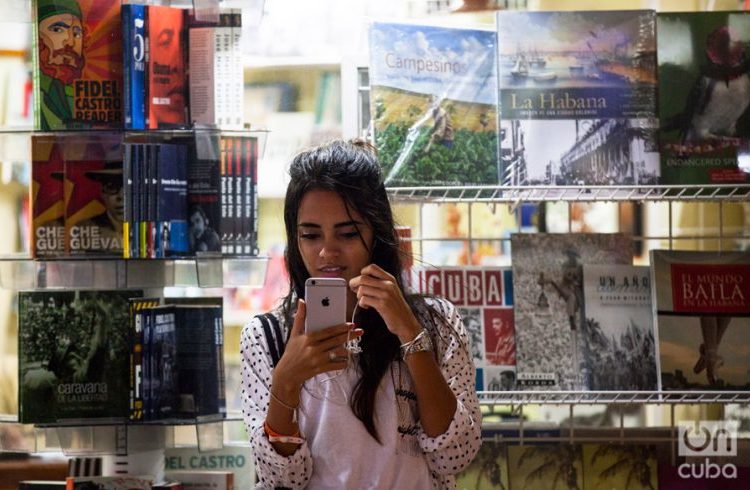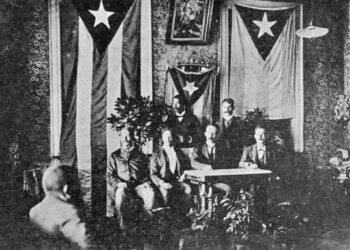The Cuban ETECSA telecommunications company reported that there are five million active cell phone lines on the island, a figure that confirms “the growing evolution of mobile telephony” in the country, where a decade ago it was forbidden for Cubans to have a cell phone in their name.
A resident of Guanabacoa, in Havana, became client number five million to sign a contract with the company, pointed out a note by ETECSA, which reached the four million users in December 2016 and closed 2017 with 4.22 million.
“2018 will be another year to continue the process of computerizing Cuban society and with this contribute with more services to the population, to the economy and to development,” indicated the state-run company, the only one that offers telephony and internet services in Cuba.
In December 2003 there were 43,000 active cell phone lines, a figure that increased to 223,000 by April 2008.
The limitation had been lifted that forbid Cuban citizens to have their own cell phone number – until then only foreigners were allowed to have them –, a measure taken by President Raúl Castro as part of his first reforms in his post.
After that, ETECSA arrived at the first million contracted cell phones in June 2010, four years later two million and in April 2015 it surpassed the three million active cell phone lines in the country.
Initially, a line cost more than 100 CUC, a prohibitive price for the average Cuban who 10 years ago earned an average monthly wage equivalent to 17 dollars.
Today it is possible to contract up to two cell phone numbers at the price of some 30 dollars, a still high amount for the current average wage of approximately 29 dollars.
As part of its projections for 2018, ETECSA announced in December that it would soon start offering cell phone internet service, although it did not specify when or the price.
Access to the web is one of pending subjects for Cuba, one of the world’s most disconnected countries.
To mitigate this situation, in July 2015 ETECSA opened several public Wi-Fi connection points, which currently amount to 630 across the country, and in 2017 it started offering the Nauta Hogar internet connection service at home, which was only allowed until now for professionals like journalists or doctors, but, contrary to what was announced, until now it is available in very few places.
EFE / OnCuba










